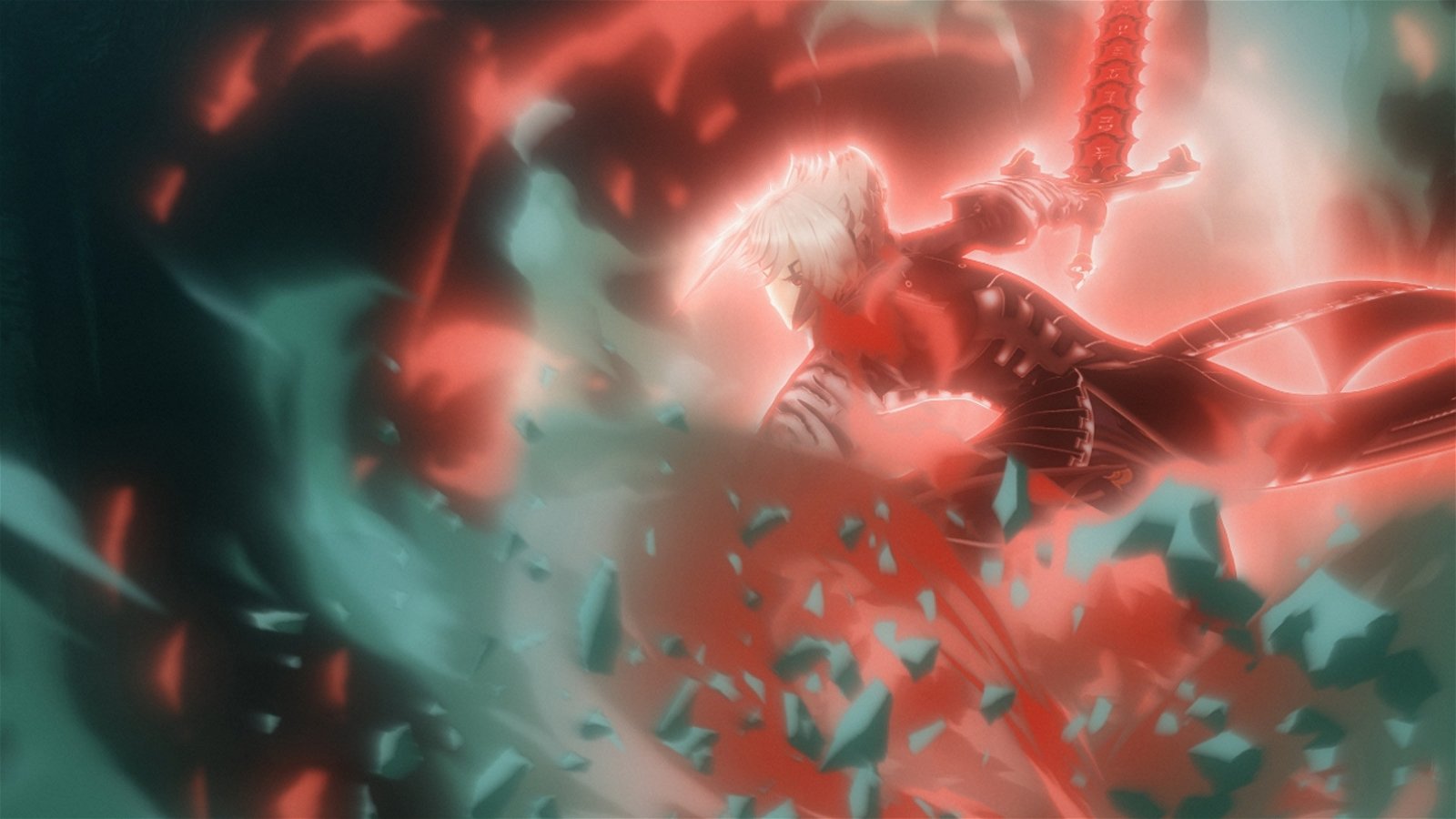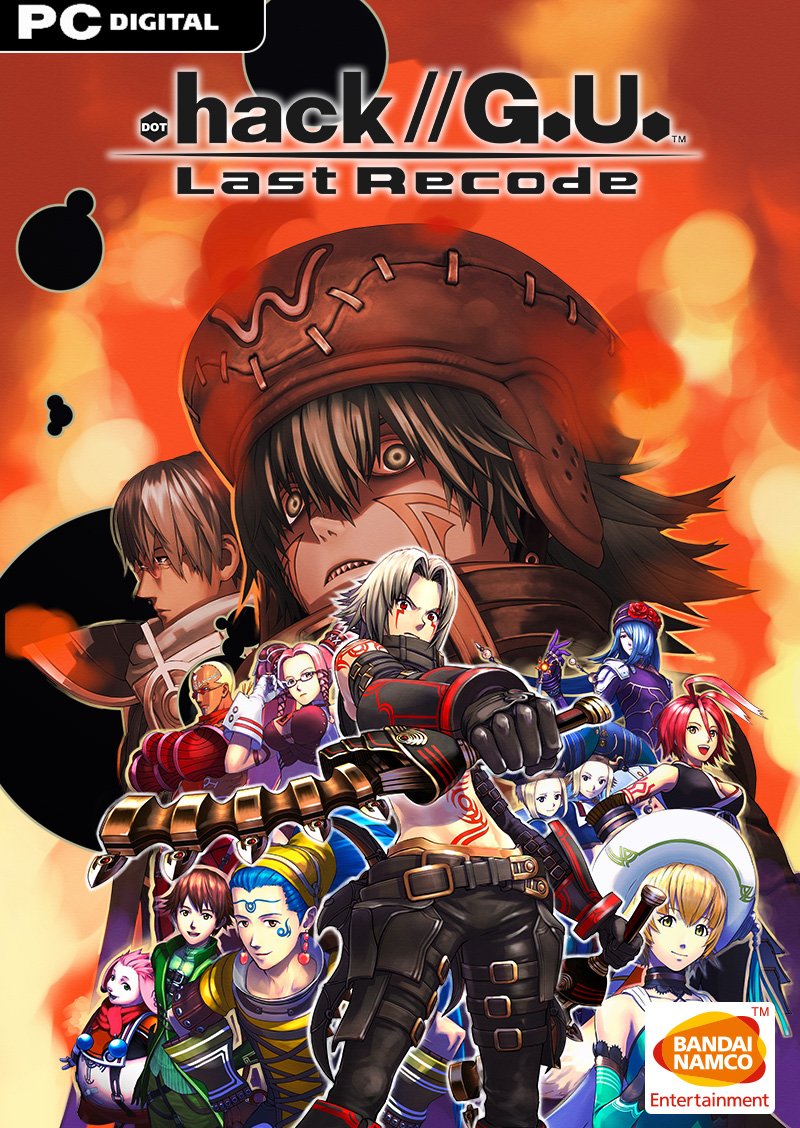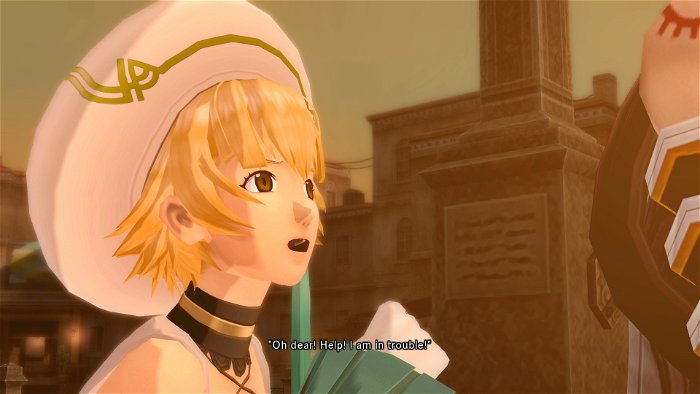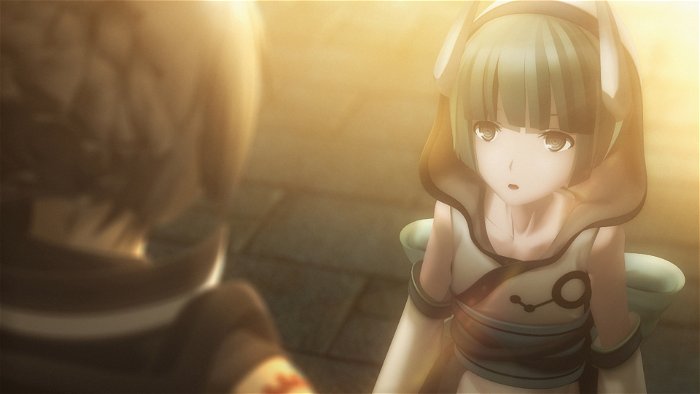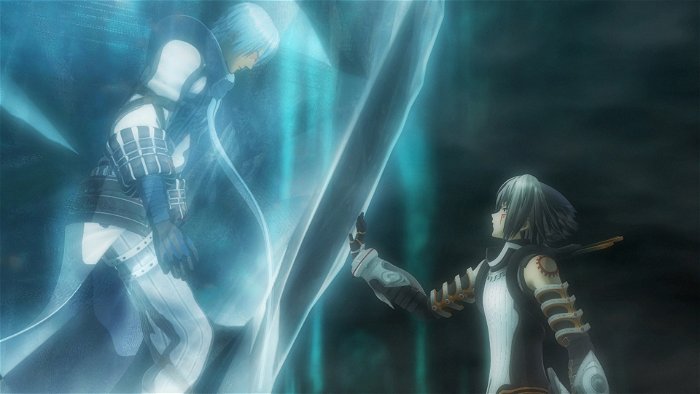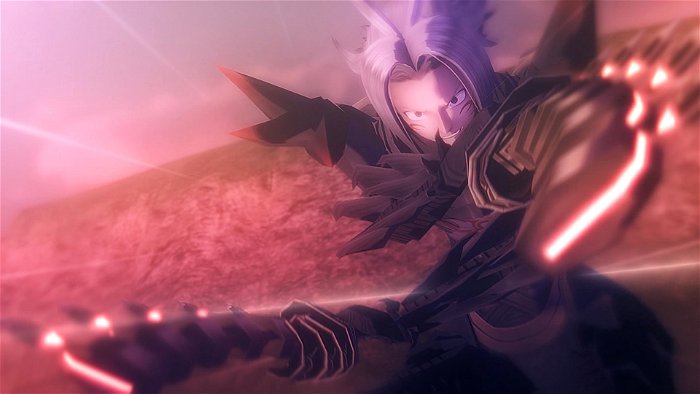The initial run of .hack was one of the earliest instances of cross-media collaboration I remember happening in the gaming space. A faux-MMORPG concept fleshed out with an anime, a manga, and series of episodic video games (before that was even a thing), .hack presented a vision of a near future where the ubiquity of online gaming had reached its apex. A sequel, .hack//G.U., arrived on the scene several years after the conclusion of the original .hack quadrilogy, focusing on a new conspiracy surrounding the players of its fictional online game, The World. .hack//G.U. Last Recode collects the entire G.U. series in a single package, fully remastered in HD, with all of its imperfections intact.
Last Recode‘s engrossing atmosphere is its greatest asset. The first thing the player sees when they start the game isn’t a fake MMORPG, but a virtual computer desktop. Here they can access protagonist Haseo’s email, browse news articles, and read forum posts by other players of The World. This is easily the most fascinating part of Last Recode. It’s a look into a future that hasn’t quite happened yet, or at least one that runs eerily parallel to ours. We may not be walking around in public with virtual reality headsets strapped to our faces, but we are constantly looking at our smartphones. Last Recode‘s least “gamey” elements are its most engrossing; it’s easy to get lost in browsing fake forum posts—I felt like I was back in my Final Fantasy XI heyday—or watching animated news clips that flesh out the world surrounding, well, The World itself.
It’s when Haseo logs in to The World that things begin to slope, albeit gently, downhill. Unlike its counterpart from the original .hack series, this version of the virtual MMORPG is plagued by players who kill other players, or PKs. Haseo, a standoffish Japanese youth, fancies himself a player killer-killer, or PKK, and plays The World to track down a PK who killed his friend, leaving her in a real-life coma. He’s eventually drawn into a conflict between several real-world organizations and a malevolent program that threatens to consume the lives of every person playing The World.
The overarching plot is sufficiently interesting, but not as interesting as the lore surrounding it. All three .hack//G.U. games are full of filler segments that exist only to pad the length of the story. The basic flow of the game involves Haseo completing a randomly generated dungeon, logging out to check his email, and logging back in to complete another dungeon ad nauseum. While the story itself is decent enough fare for the genre, it’s always delivered in the same stale format, making it difficult to digest in anything but short bites.
The core issue here is that .hack//G.U. just isn’t that fun of a game. It’s a fairly authentic recreation of an MMORPG, but it’s important to note that it emulates the MMORPGs that were prevalent in the early 2000s. It’s a game fundamentally built around a need to grind repetitive tasks over and over, but without a true social component, this gameplay structure falls flat. Dungeons are nigh-infinite, semi-random, and largely barren. Monsters appear in the same clusters of three at predictable intervals. It sort of feels like you’re “playing” .hack//G.U in short bursts, and the rest of your time is spent moving from empty room A to empty room B via empty hallway C. Even a cleaned-up visual presentation and redrawn textures can’t hide .hack//G.U.‘s old bones.
The game’s action-oriented combat has some depth, particularly when compared to the original .hack, but it’s not robust enough to carry the entire experience. At the very least, a new “Cheat Mode” in Last Recode allows the player to overcome the tedium of grinding through instant omnipotence, though it also strips the game of its complexity in one fell swoop. Another new feature is “Parody Mode,” which is a collection of cutscenes from each volume dubbed over with humourous, purposely unfitting dialogue. Some of these made me chuckle, but I found most to be banal. Maybe I just hate fun. Your mileage will vary.
Returning .hack//G.U. players will undoubtedly derive the most enjoyment from Last Recode‘s brand new fourth volume, Reconnection. In this brief epilogue, Haseo returns to The World on the eve of its servers going permanently offline to make one last attempt at reuniting with a lost friend. It’s a story-driven affair that strips the game of everything aside from its core dungeon crawling component. The entire episode is only about two hours long, which feels just right in terms of length—maybe even a little long, considering how little it offers in terms of new gameplay—and concludes with a satisfying payoff that feels legitimately earned. It’s a nice nod to series fans that teases the possibility that .hack will return in the future.
.hack//G.U. Last Recode is an interesting slice of history in that it depicts a future where we’ve made significant advancements in virtual reality technology, but not in video game design. Its strict adherence to dated mechanics makes it too repetitive for its own good. The people in G.U.‘s world may be slaves to the MMORPG grind, but in our timeline, game developers have already proven that they can do better.
